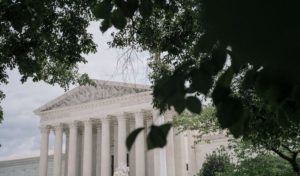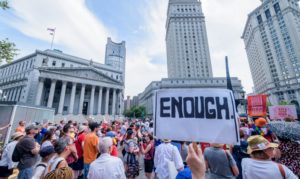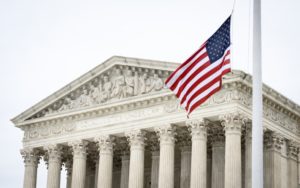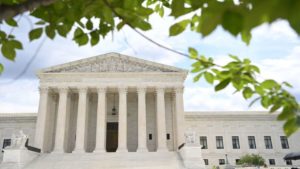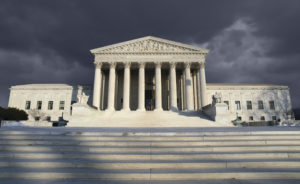Reexamining the Renewable Fuel Standard in Letter and Spirit
In a recent case, the Supreme Court failed to address the purpose of exemptions from EPA’s renewable fuel standard.
Applying the Takings Clause to Regulatory Access
The Court’s unprecedented decision applying the Takings Clause to regulatory access will have limited impact.
The Appointment and Removal Litigation Ecosystem
Collins v. Yellen further clarifies the scope of “for cause” removal of agency heads.
An End Run Around the Gun Industry Liability Shield
New York lawmakers’ attempt to regulate guns will result in significant legal challenges.
AMG Aftershocks
The repercussions of a recent Supreme Court decision could affect future trade regulations.
Expanding Presidential Influence on Agency Adjudication
The Supreme Court’s decision in U.S. v. Arthrex expands the avenues for politicizing agency adjudication.
Heavy on the “Mayo,” But No Hot Sauce
CIC Services avoided anti-administrative rhetoric while securing the check of judicial review on the IRS.
Returning to Agency Deference in Communications Law
With its Prometheus decision, the U.S. Supreme Court centered agency deference in reasonableness.
Taking the Regulatory Crisis in the Amazon Seriously
Environmental regulatory rollbacks harm Brazil’s Amazon and its Indigenous communities.
Giving California v. Texas the Attention It Deserved
The Supreme Court’s latest ACA case was properly dismissed, but a waste of time.
The Collapse of Champlain Towers South Was a Regulatory Failure
Lack of regulation contributed to the collapse of the Champlain Towers South building.
The Supreme Court’s “Exceptional” Term
Several of the Supreme Court’s recent decisions bolster agency power to alleviate regulatory obligations.



